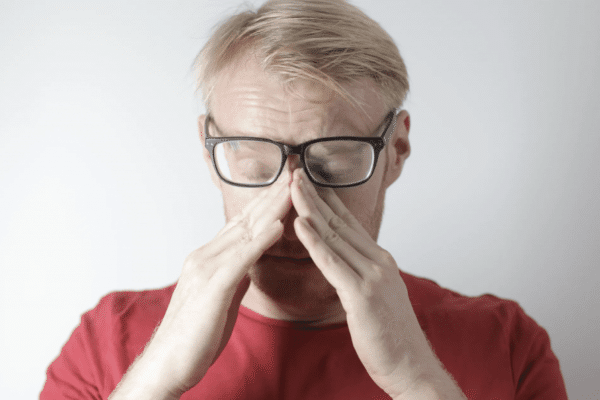Why is Smoking Addictive?

Smoking is an unhealthy habit, no matter which way you look at it. It can be addictive, dangerous to your health and detrimental to your body. There are many health risks that may encourage you to quit, but smoking isn’t known to be an easy habit to get rid of. Whether you’re still smoking or thinking of quitting, it helps to understand what you are dealing.
What Makes Smoking Addictive?
Even though you may already have the intention to quit smoking, more often than not it’s extremely difficult to actually do so. Cigarettes are so addictive because of the nicotine contained in it, which alters the balance of two chemicals in your brain: dopamine and noradrenaline. These two chemicals change your mood and concentration levels, which is enjoyable for most people.
This will happen very quickly when you inhale nicotine. It goes right to your brain to produce pleasure while reducing stress and anxiety. Many smokers become dependent on this feeling, so the more you smoke, the more your brain craves this feeling. Inevitably, this means you develop a tolerance and must smoke more for the same effect.
What Does Smoking Do To Your Body?
Cigarettes and tobacco are dangerous to your health, no matter how good they may feel when you’re smoking. There can be long-term effects as well as immediate effects on your body, increasing the risk of health problems over the years.
Central Nervous System
Nicotine affects many of your body’s systems, including your nervous system. It will reach the brain in seconds to make you feel more energized until it wears off, leaving you tired and craving more. You may also experience headaches and anxiety as well.
Respiratory System
The lungs are one of the main organs that becomes damaged. There’s not only an increased risk of infection, but a higher risk for nonreversible conditions like:
- Emphysema, which destroys air sacs in the lungs
- Chronic bronchitis, which causes permanent inflammation in the lining of the breathing tubes
- Chronic obstructive pulmonary disease
- Lung cancer
Only after you quit smoking will those damaged airways begin to heal. Even then, they will still need considerable time to recover.
Cardiovascular System
Your blood vessels will tighten under the influence of tobacco, restricting the flow of blood. Over time, this can cause peripheral artery disease, raise blood pressure, and increase blood clots. This will raise your risk of stroke much higher than normal.
Integumentary System
Amongst smokers, you will see obvious changes in the skin. There’s a higher likelihood for fungal nail infections and skin cancer. Even hair loss, balding, and greying are more likely.
Digestive System
Smoking also increases the risk of mouth, throat, larynx, and esophagus cancer, along with pancreatic cancer. There can also be a chance that you’ll develop insulin resistance, making type 2 diabetes a problem.
Reproductive System
Finally, nicotine will affect the blood flow to the genital areas. This can result in sexual dissatisfaction, and a possible decrease in sexual desire.
What Are The Risks Of Smoking?
Smoking is so detrimental to the body that the mortality rate for smokers is three times higher compared to non-smokers. As many as 100,000 people in the UK die every year, with many more people experiencing ongoing health problems or issues as a result of second-hand smoke.
In terms of health risks, smoking is incredibly dangerous. Around 90% of lung cancers are caused exclusively by smoking, but cancers in other areas of the body can be caused as well. This includes the:
- Mouth, lips, and throat
- Voice box and esophagus
- Bladder and kidneys
- Liver, stomach, and pancreas
Passive Smoking Risks
Not only are you affected by smoking, others around you are affected as well. Second hand smoke is breathed in by others, and can lead to the same health risks in non-smokers that smokers ordinarily experience. Babies and children are especially vulnerable, and are much more likely to develop conditions like meningitis, persistent coughs, asthma, and ear infections.
Why Quit Smoking?
If you do quit smoking, you can reverse many of the negative effects on all systems of your body. Quitting around age 30 can reduce your chance of dying by more than 90%, while quitting around age 50 reduces premature death by 50%. Even if you quit when you’re older, you’ll live much longer than those who continue to smoke.
Financial Reasons
You spend a lot more money than you think on cigarettes, and will end up saving a huge amount with fewer trips to the doctors and a lower cost for health and life insurance.
Appearance
Quitting can also help your looks, which is a major motivator for some individuals. Your breath will smell better, your teeth will be whiter, and you won’t need to worry about yellow fingers and fingernails either. Chances are, you’ll even begin to look younger too.
Quit For Others
Ultimately, quitting improves other areas of your life as well. You’ll look more appealing to potential partners and become a more positive role model for kids. It helps that you’ll have more energy as well to spend with the special people in your life.
How Long Does It Take To Quit Smoking?
It’s quite hard to quit smoking because of the nicotine. However, it certainly is possible. The first few days after stopping will be incredibly difficult, and will require a lot of willpower on your part to overcome those withdrawal symptoms.
It’s not until 3-5 days after stopping that you will start to feel the cravings stop, but it still takes around 2-4 weeks to break the habit completely. After the first month, you’ll find that many symptoms are now gone and it’s much easier for you to get back on track with your life.
What Are The Smoking Withdrawal Symptoms?
One of the hardest aspects of quitting smoking is dealing with the withdrawal symptoms. This dissuades many people from stopping, but if you can get to week 5, your life will be smooth sailing.
Even after the first 30 minutes after quitting, you can experience symptoms. It all depends on your level of addiction, including how long you used tobacco and how much you use on a daily basis. For the most part, you will see symptoms like:
- Nicotine cravings
- Tingling in the hands and feet
- Sweating and nausea
- Cramping, headaches, and sore throat
- Insomnia and difficulty concentrating, along with anxiety, irritability, and depression
- Weight gain
For the most part, these symptoms will peak in the first few days after quitting, and by two weeks, will be much more manageable. Just be aware that you may experience withdrawal for several months if you have smoked for a long time.
Conclusion
Smoking is certainly a difficult habit to quit, but it can be done with enough effort, motivation coupled with the right strategies. By quitting, you can rid yourself of many health problems, and improve your health over the years. Even though it’s not easy with nicotine being so addicting, quitting smoking can have a plethora of benefits, especially when those withdrawal symptoms are finally over.
If you would like to find out more information, then reach out and find out how we can help you quit smoking.


